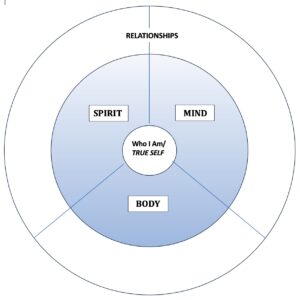I recently delivered a seminar to a workplace in the throes of restructuring. Three months earlier, this same company hosted almost 500 employees, today 100 remain with 50 more scheduled to leave within the next month. Although the employer offered career transition coaching and training to the departing employees, you can imagine the deflated atmosphere and morale of those still on the payroll. Prolonged losses and the sheer volume of layoffs can eventually grip remaining employees with survivor’s guilt — a significant symptom of posttraumatic stress disorder (PTSD).
Regardless of the reasons for organizational restructuring — mismanagement, economic downturns, political agendas — when we hear someone has been laid off, our typical response is sympathy. No one likes to find himself ousted without a choice in the matter. However, this is the context within which we live and work.
Downsizing is not only prevalent in North America. Because of competitive
pressures around the world, firms are increasingly forced to cut costs,
restructure, and reduce their labor force. Moreover, in countries that are
moving from a state-dominated to a market system such as countries in
Latin America and Eastern Europe, privatization often brings about the need
to reduce firms’ headcount. Downsizing has even become common in
industrialized countries such as Japan and Sweden (Appelbaum, Everard,
Hung 1999).
Our sympathy is triggered for anyone experiencing lay-off because we recognize their support system at work is cut off while stress and anxiety at home is increased. Without solid coping tools, the associated social isolation, fear and self-doubt can take individuals on a downward spiral into self-defeat and depression.
These negative reactions to downsizing are often triggered by a lack of control or power over our external environment. However, the reality is that we have little or no control over many of the external events in our lives — death of a loved one, divorce, natural disasters, job loss, aging, etc. In the end, attempting to control rather than ease into these events leads to rigidity, protectionism, domination, exploitation, fear and paranoia.
We do not have any say about the events of our lives, but we do have say
over how we interpret them. Nietzsche (1844-1900)
Our filter of perception or interpretation of life events is a culmination of our values, beliefs, past experiences and expectations, all of which are coloured by our social conditioning. Nonetheless, we can choose to replace negative, fear-based feelings and thoughts with positive, affirming ones. Instead of seeking maladaptive power over the external world, we can empower ourselves by practicing these adaptive skills.
1. Self-awareness.
Most of us take our physical bodies for granted, never realizing what wonderful messengers they are for bringing us into the present moment and informing us of how we are feeling. Connecting to the physical sensations in our body connects us directly to our emotional state. Becoming aware of, understanding and befriending our body and emotions empowers our ability to respond to life events in healthy, helpful and appropriate ways.
2. Self-responsibility.
Accepting the fact that our emotions are our own creations and never caused by anything or anyone else begins the journey toward eliminating blame and fault-finding. Furthermore, owning our present moment experience and feelings allows us to consider the possibility of changing what we no longer want. We can choose to feel fearful and angry, or we can choose to feel loving and peaceful.
3. Intuition.
In these times of complexity and uncertainty, we need all the creative energy and support we can get so hone your intuitive ability. Our intuition opens the doorway to what I call the cosmic library, which in essence is wisdom far beyond our present capacity. For every question you ask, an answer that best serves you will be provided. Your job is to listen to these “whispers of inspiration,” which may not arrive on your time clock but assuredly do arrive. Our intuition provides us with early warning signs and glimpses into the future, which ensures us those extra seconds or minutes vital for choosing a healthy response over one based on fear and negativity.
4. Trust.
When we open our body, mind and spirit to the wisdom of the Universe, we discover we are never alone and together co-create our intentions. This collaborative, creative relationship (as in any healthy relationship) is predicated on trust. This trust necessitates the release of fear and negativity in place of love and an optimism that what is emerging is in one’s best interest.
Given the choice, I know I prefer
• love and trust over fear and doubt,
• authenticity (internal power) over arrogance (external power),
• collaboration (shared power) over competition (domineering power), and
• co-creation over disempowerment.
What about you? Which of these tools will most empower you to adapt to restructuring as well as other changes in your workplace?
Source:
Zukav, Gary. 2010. Spiritual Partnership: The Journey to Authentic Power, Random House Group.





